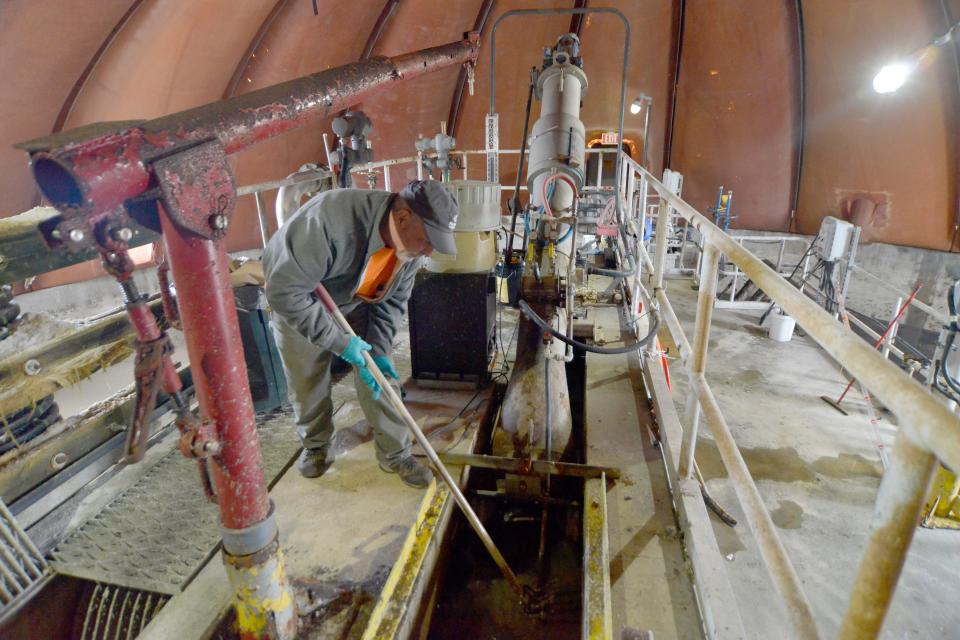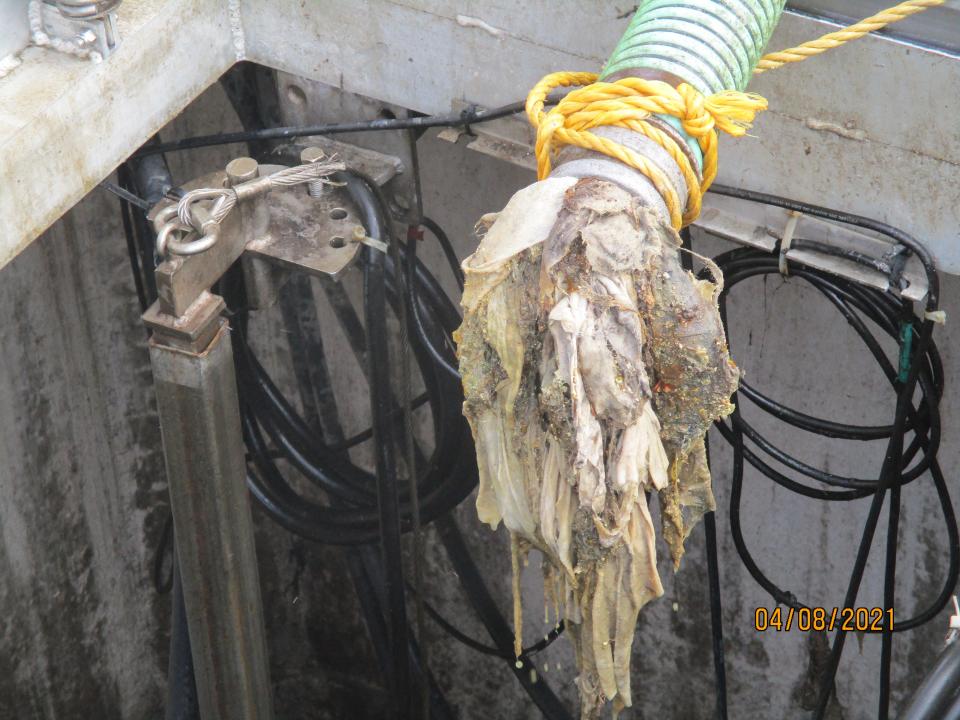Do you use 'flushable' wipes? Two state legislators want new labeling. Here's why.
Editor's note: This story has been updated to more accurately describe a proposed bill regarding wipes. The legislation would cover wipes that are entirely or partly made from petrochemical-derived fibers, and not specifically wipes that are currently marketed as "flushable," as an earlier version of this story reported.
It turns out many frequently used wipes, regardless of their intended use, are not so flushable. And members of the state Legislature want to clarify their labeling.
Issues with wipes that started pre-pandemic were exacerbated by COVID-19, the lack of toilet paper and the rush to wipe everything.
“These wipes, when they are introduced into the wastewater infrastructure, can do serious damage,” said state Rep. Sean Garballey, D-Arlington. The legislator has filed a two-pronged bill requiring a new label that would indicate the product should not be flushed down the toilet, as well as a public education campaign about the issue.

The legislators are referring to the “pre-moistened, non-woven, petrochemical derived fibers,” sold as “flushable” and used for cleaning everything from babies’ bottoms to hard surfaces in the bathroom, removing makeup, disinfecting and sanitizing surfaces, and those labeled for “personal care.”
We’re not talking washcloths.
The material does not disintegrate (like bathroom tissue) and forms a mass that blocks wastewater treatment equipment or ends up killing a leech field in septic systems.
Wipes damage both sanitary sewer systems and septic systems.
And the repairs are expensive.
“It costs $40,000 to replace a septic system in Massachusetts,” said Ronald Spraske, of American Sewerage and Septic in Leicester. He described a septic system as a “living eco-system that depends on the microbes in human digestive systems to break down the solids that find their way into the septic tank."
In a private septic system, an average four-bedroom home in Massachusetts relies on a 1,500-gallon system. The wipes form a giant mat at the top of the septic tank. That layer of non-woven petrochemical fibers creates a layer that prevents the microbes from performing their function.
“The solids are not touched by the bacteria,” Spraske said.
In more technical language: There are three layers in a septic tank — the bottom is called the sludge layer, the top is the scum layer and the middle is liquid.
“About 90% of the clogs I deal with are caused by an over-abundance of wipes around the incoming pipes,” Spraske said. “The scum layer gets so thick; it has no time to work on the solids and pushes undigested solids into the leech field causing the field to die.”
Thus, the idea of killer wipes.
After pumping out a tank, Spraske delivers the effluent to one of the regional treatment facilities where the “rags” can get caught in the headworks. That increases sewerage costs for municipalities by damaging equipment and needing to hire employees to clean the clogs from the pipes and the pumps.
In Provincetown wipes that are flushed into the town's sewer system clog up "all kinds of stuff"
It's a problem everywhere. Provincetown Department of Public Works Director James Vincent said the wipes "clog up all kinds of stuff" in municipal systems.

"They're definitely not something you want to flush, but a lot of people don't understand that," he said.
The main problem his department sees is when the wipes gum up grinder pumps in the system, and they end up having to be replaced — not a cheap prospect. Grinder pumps are used to pump sanitary sewage into the municipal sewer mains when gravity flow needs an assist because of grade differences.
The wipes also cause problems in other parts of the system as sewage flows to the treatment plant.
"Before it gets to the plant it goes through this process where the pieces of the wipes get macerated, or chopped up. But they float and they attach to each other and create a mat," Vincent explained.
This causes clogs and also jams up the sequencing batch reactor, described by the U.S. Environmental Protection Agency as "a fill-and-draw activated sludge system for wastewater treatment" in which "wastewater is added to a single 'batch' reactor, treated to remove undesirable components, and then discharged."
This is where the main treatment occurs toward the end of the system.
"You certainly don't want any clogging up in that area," said Vincent, noting the wipes "can really clog up that part of the system. They don't dissolve like toilet paper."
Owners of rental properties in Provincetown don't let their guests know to avoid flushing wipes, according the public works department.
Part of the problem with the wipes in Provincetown in particular, he said, is that owners of rental houses don't always make it clear not to flush the wipes, especially in homes that are on the vacuum system in the downtown area — these are systems that use mechanical pumps to transport sanitary sewer waste. It's a simple matter of communication, he said.
"A lot of people just don't know," he said, noting he agrees a public education component would be an important part of any legislative efforts to address the problem. "I know people like them, but don't flush them."
In Natick havoc wreaked by wipes is expensive
“There’s a financial cost,” said Michael Boudreau, Natick’s director of public health. The community posts information about the havoc wreaked by wipes on its website.
Basically, the material collects in the pipes and the municipality dedicates hundreds of man-hours to the job of unclogging the pumps. Repairing a grinder pump starts at $5,000. Replacing it costs $80,000. Repairing a sewer line can cost residents up to $7,000. That cost, in time, salary and damages, is passed on to residents in their sewer and water bills.
The legislators want the wipes relabeled, and the public educated.
Until the industry creates wipes that are truly flushable, Garballey wants manufacturers to relabel products to include a big, highly visible symbol that indicates the wipes do not belong in the toilet.
The bills, filed by Garballey in the House and state Sen. Jamie Eldridge, D-Acton, in the Senate, would allow a lead time to relabel the merchandise and educate the public.
Cape Cod Times reporter Heather McCarron contributed to this report.
Gain access to premium Cape Cod Times content by subscribing.
This article originally appeared on Telegram & Gazette: New labels for flushable wipes may save toilets, sewers, septic tanks

